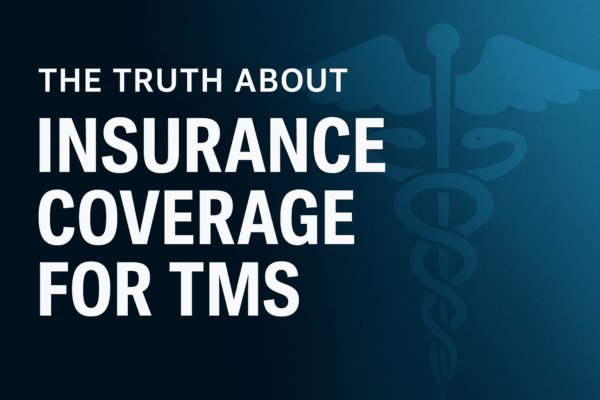Introduction
In recent years, interventional psychiatry has emerged as one of the most promising frontiers in mental healthcare. Treatments like TMS, Spravato, and IV or IM ketamine offer patients new hope—especially those who’ve tried multiple medications without success. So it’s no surprise that more and more clinic owners and psychiatrists are launching new programs to meet this need.
But here’s the problem: most of them fail. Not because the treatments don’t work—they do. But because the clinics don’t set themselves up for success. From poor marketing to broken patient experience, the pitfalls are consistent across the board.
If you’re starting or scaling a TMS, Spravato, or ketamine clinic, these are the common mistakes you need to avoid.

1. Assuming Effectiveness = Demand
These treatments change lives. But just because they work doesn’t mean patients are lining up to receive them. The truth is: most people have never even heard of TMS or Spravato. And when they do hear about them, their first reaction is often skepticism.
“You’re going to stimulate my brain?”
“You’re giving me a party drug—and that’s supposed to help?”
Because awareness is low, demand is low—and that’s where most clinics miscalculate. They believe that offering these services is enough. It’s not. You have to educate patients, guide them, and build demand from the ground up. That starts with marketing and ends with experience.
2. Failing at Patient Experience
This is the number one reason clinics don’t make it. In general psychiatry, patients come to you. But with TMS and ketamine, you’re the one doing the outreach—and when a patient finally shows interest, the experience needs to be flawless.
That means:
- Thoughtful, responsive communication
- Educated staff who can explain treatments clearly
- Providers who instill confidence and address concerns
- Processes that make the journey seamless and supportive
Most clinics don’t realize they’re not just delivering care. They’re selling belief—in a treatment the patient has never heard of and may be afraid to try.
“Clinics that thrive in interventional psychiatry treat their front desk like a concierge desk. Every call, every touchpoint—it matters.”
3. Not Reaching Out Enough
In-demand services like general psychiatry or therapy rely on patients reaching out. But TMS, Spravato, and ketamine require clinics to do the heavy lifting.
If your practice doesn’t have clear systems for:
- Patient outreach
- Re-engagement of prior patients
- Community education
- Referral nurturing
Then the phone won’t ring. And when the phone doesn’t ring, the machine collects dust.
4. Insurance Gaps That Create Barriers
Accessibility is everything. These treatments aren’t cheap—and if you’re not credentialed with major insurance plans, your patients are walking into a brick wall. Many clinics limit their own potential by offering cash-pay only or accepting too few payers.
In a field with low awareness, you need high accessibility. Insurance coverage isn’t optional—it’s your lifeline to volume and sustainability.
Conclusion
The treatments are powerful. The outcomes are real. But without strategy, infrastructure, and a commitment to world-class patient experience, most interventional clinics don’t survive.
If you want to build a thriving TMS, Spravato, or ketamine clinic, the formula is clear:
- Educate your market
- Deliver a frictionless patient experience
- Make yourself accessible and visible
The clinics that win are the ones that treat patients like people, not leads—and guide them through a journey that feels personal, empowering, and effective.


